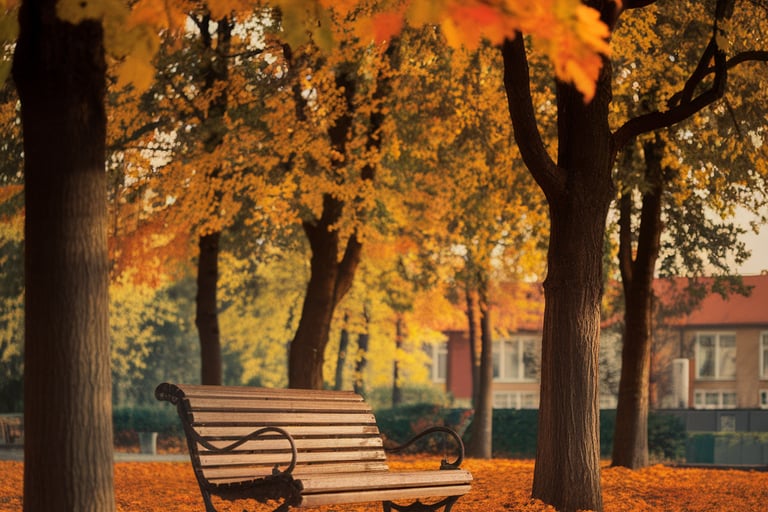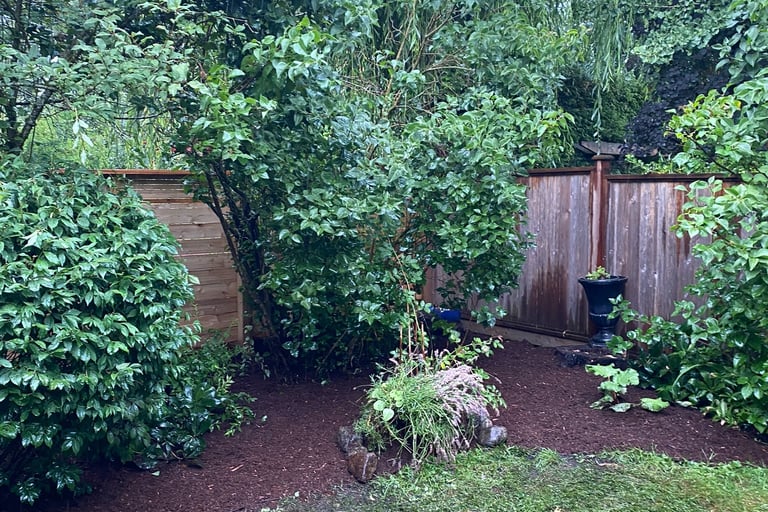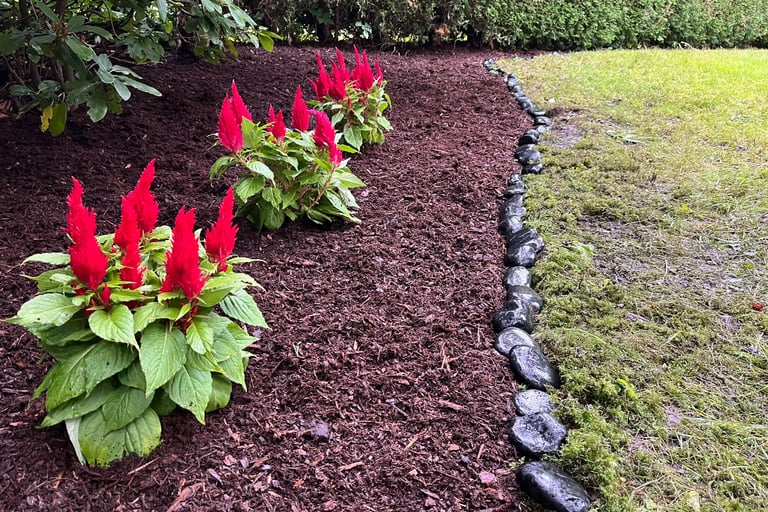
What Landscaping Should be done in a Vancouver Fall?
Essential Fall Landscaping Tasks for Vancouver Gardens: A Complete Guide for 2024
Fall in Vancouver brings unique challenges and opportunities for homeowners looking to maintain their outdoor spaces. With our distinctive coastal climate and average rainfall of 1,189 mm annually according to Vancouver's Weather Data, preparing your landscape for the wet season requires specific attention and careful timing.
Timing Your Fall Landscaping in Vancouver
The window for fall landscaping in Vancouver typically runs from late September through early November, though our mild climate can sometimes extend this period. According to the Canadian Farmers' Almanac, Vancouver's first frost usually arrives in early November, giving homeowners a generous window to prepare their gardens.
Lawn Care Priorities
Vancouver's fall lawn care needs are unique due to our coastal climate. The first step is addressing moss growth, a common issue in our region due to high rainfall and acidic soil conditions. Local soil testing through Pacific Soil Analysis can help determine your lawn's specific needs.
Core aeration becomes crucial in fall, especially in areas like Point Grey and Kitsilano, where clay-heavy soils are common. This process helps prevent water pooling during our notorious wet season. Following aeration, apply a Vancouver-specific winter fertilizer blend with higher potassium content to strengthen grass roots against our mild but wet winters.
Tree and Shrub Management
Our native trees and shrubs require particular attention in fall. Species like Western Red Cedar and Douglas Fir need different care than ornamental varieties. Pruning should be completed by mid-October to allow healing before winter, but avoid heavy pruning of spring-flowering shrubs like rhododendrons, which are abundant in Vancouver gardens.
Professional arborists from TreeWorks Vancouver recommend conducting thorough inspections of mature trees, particularly after our increasingly common summer drought periods. Look for signs of stress such as premature leaf drop or branch dieback, which could indicate deeper issues requiring professional attention.
Perennial Care and Division
Fall presents the ideal time to divide and replant perennials in Vancouver gardens. Our mild autumn temperatures and reliable rainfall create perfect conditions for root establishment. Plants like hostas, daylilies, and Pacific Coast iris benefit from division every 3-4 years to maintain vigor.
Local garden centers like GardenWorks recommend waiting until temperatures consistently stay below 20°C before dividing perennials, typically around late September in Vancouver. This timing allows plants to establish strong roots before winter while taking advantage of natural rainfall patterns.
Soil Preparation and Mulching
Vancouver's unique soil composition, which varies from sandy looms in areas like Dunbar to clay-heavy soils in parts of East Vancouver, requires specific attention during fall. According to the UBC Botanical Garden, fall is the optimal time to amend soil as winter rains help integrate new materials naturally.
Working with our naturally acidic soils means adding lime in fall, particularly important for lawns and vegetables beds. The BC Landscape & Nursery Association recommends applying dolomite lime in October to allow time for it to work into the soil before spring growth begins.
Mulching in Vancouver requires special consideration due to our wet winters. While other regions might apply thick layers of mulch, our approach needs to be more measured. A 2-3 inch layer of well-draining organic mulch works best, allowing necessary water movement while preventing soil erosion during heavy winter rains.
Winter Protection Strategies
Vancouver's winters, while mild compared to the rest of Canada, still present challenges for certain plants. Our frequent freeze-thaw cycles can be particularly damaging to shallow-rooted plants and newly installed specimens. Protection strategies need to focus on managing excess moisture rather than extreme cold.
Container Gardens and Seasonal Transitions
Container gardens require special attention in Vancouver's fall season. Terra cotta and ceramic pots, common in Vancouver gardens, can crack during freeze-thaw cycles. Consider relocating sensitive containers to protected areas, such as under eaves or in garages. For containers too large to move, Art's Nursery suggests wrapping them in bubble wrap or burlap for insulation.
Fall is also the time to plant spring-flowering bulbs. Vancouver's climate is perfect for naturalizing bulbs like daffodils, crocus, and our local favorite, Spanish Bluebells. Plant these before the heavy November rains begin for best results.
Managing Drainage Systems
Our significant rainfall makes proper drainage crucial. Fall maintenance should include clearing gutters and ensuring proper grading around foundations. Areas like North Vancouver and West Vancouver, with their steep terrains, require particular attention to erosion control and drainage management.
The City of Vancouver's Green Infrastructure guidelines recommend installing rain gardens and bioswales where possible to manage stormwater naturally. Fall is the ideal time to implement these features before the peak rainy season.
Hardscape Maintenance
Fall is crucial for maintaining hardscape elements in Vancouver gardens. Our wet climate can lead to slippery surfaces and moss growth on pathways and patios. Professional pressure washing services like Pressure Pro recommend cleaning these surfaces in early fall while temperatures are still mild enough for proper drying.
Check retaining walls for signs of water damage or shifting, particularly important in hillside properties common in areas like British Properties or Capitol Hill. The freeze-thaw cycles can exacerbate any existing structural issues.
Fall Planting Opportunities
Vancouver's mild climate creates unique opportunities for fall planting that many other Canadian cities can't enjoy. According to West Coast Seeds, our growing zone 8a-8b allows for numerous cool-season crops and ornamentals to be planted well into autumn.
Winter Vegetable Gardens
Our moderate winters make Vancouver ideal for winter vegetable gardening. Cold-hardy crops like kale, Brussels sprouts, and Swiss chard can thrive throughout our mild winters. The key is timing - plants should be well-established before the shorter days of November arrive.
Local urban farming initiative City Beet Farm recommends installing cold frames or hoop houses in October to extend the growing season. These structures provide protection from our heavy rains while maintaining adequate ventilation to prevent fungal issues common in our humid climate.
Professional Considerations
While many fall landscaping tasks can be DIY projects, some require professional expertise. Complex tree work, drainage issues, or major landscape renovations should be handled by certified professionals. The BC Landscape & Nursery Association maintains a directory of qualified contractors familiar with Vancouver's specific challenges.
Planning for Spring
Fall work sets the stage for spring success. Consider consulting with a landscape designer now for spring projects. Many Vancouver landscapers, like Botanical Designs, offer fall consultations to plan spring installations, taking advantage of the wet season for plant establishment.
FAQ Section
Q: When should I stop mowing my lawn in Vancouver?
A: Continue mowing until grass growth stops, typically in late November. Keep grass at 2.5-3 inches to prevent snow mold during our wet winters.
Q: Do I need to wrap my plants for winter in Vancouver?
A: Most established plants don't need wrapping in our mild climate. However, tender plants like tree ferns and banana plants benefit from protection against occasional freezing temperatures and wet snow.
Q: How do I prevent water damage to my garden during Vancouver's rainy season?
A: Ensure proper drainage, maintain clear gutters, and consider installing French drains in problem areas. Raised beds can also help manage excess water in particularly wet areas.
Q: What's the best time to plant trees and shrubs in Vancouver?
A: Fall is ideal for planting trees and shrubs in Vancouver. Our wet season helps establish strong root systems before summer drought stress.
Q: How do I deal with Vancouver's notorious moss problem?
A: Address drainage issues first, maintain proper soil pH through regular liming, and ensure adequate air circulation. Consider professional moss treatment in severe cases.
Don't let Vancouver's fall season catch you unprepared. Whether you're handling maintenance yourself or seeking professional help, now is the time to act. For a professional consultation on your fall landscaping needs, contact a certified local landscaper who understands Vancouver's unique climate challenges.
Remember, proper fall maintenance not only protects your landscape investment but also sets the stage for a beautiful spring garden. Our mild but wet climate offers both challenges and opportunities - making informed decisions now will reward you with a healthy, vibrant landscape throughout the year.
For more detailed information about specific fall landscaping services or to schedule a professional consultation, visit the Vancouver Park Board's Green Streets Program or connect with local landscaping professionals who understand our unique Pacific Northwest conditions.








